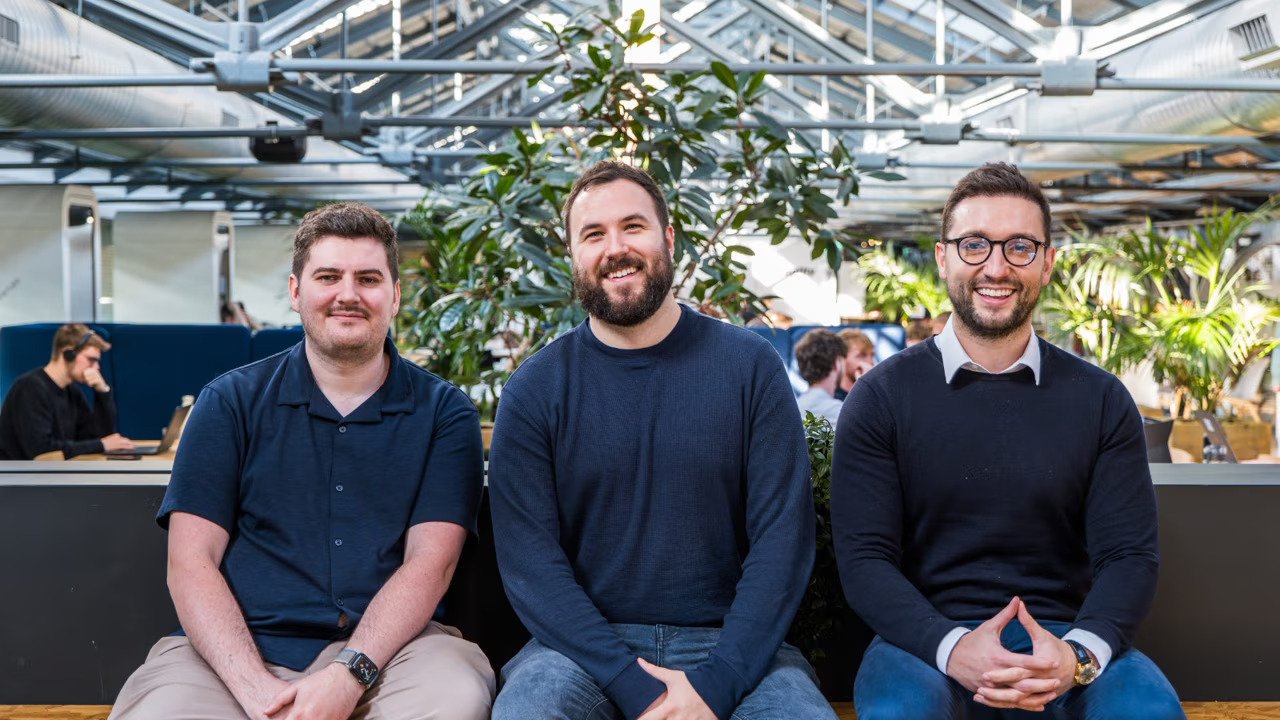One in four people have a disability at any time. It has a huge impact on how you engage with the digital world. Some common scenarios:
- You want to book a table at a restaurant online, but you can’t see the phone number on the page.
- You can’t click on a link due to a lack of colour contrast.
- Autoplay media and pop-ups result in sensory overload.
- You must schedule an urgent appointment but don’t understand how to make contact.
- You can’t fill in a form as it requires you use a mouse or keyboard.
- Step-by-step instructions are hard to follow.
- Memes make no sense.
Irish startup Dev Ally has developed an AI-powered platform that makes the Web more accessible from the code up. We met at Slush 2024, where the company made it to the final three startups in the Slush 100 competition after pitching live on the coveted international summit’s Startup Stage.
I spoke to its co-founders, Cormac Chisholm, CEO, Patrick Guiney-Fox, COO, and Darren Britton, CTO, to learn how the company is making the Web accessible for all.
DevAlly’s platform enables businesses to audit and fix accessibility issues within minutes without requiring specialised expertise or outsourcing. It can schedule automated accessibility audits to track and identify issues, ensuring ongoing compliance and provides step-by-step guidance from accessibility experts to help navigate compliance requirements.
The founding team at Dev Ally has known each other for 13 years and have lived experience of dealing with accessibility challenges, both personally and in their families.
According to Patric, who has ADHD, 97 per cent of the Web’ss top 1 million websites are inaccessible. It's where the physical world was in terms of accessibility 25 years ago.
“COVID really highlighted the fact that the Web is not built for everyone.
It's time for that to change. People often see accessibility as an afterthought and don't prioritise it.
So what we're trying to do is make accessibility as easy as possible, embedding it at the code level so that you can’t ship inaccessible code.”
He asserts, “This isn’t just about making your products accessible but making everything accessible.”
“It’s vital to stand for our fellow citizens and ensure they're accommodated. The way people with disabilities have been treated and excluded from the digital world for all of these years is disgraceful. We have the technology to stop this from happening.”
Further, Dev Ally empowers users with disabilities to report accessibility issues directly. Many existing forums for such reports are themselves inaccessible.
Companies can engage directly with users, empowering them to voice accessibility concerns and enabling prompt issue resolution.
An accessible design-first approach benefits us all
Inclusive design isn't just about accessibility; it's about creating products and services that benefit everyone. Even the widespread use of subtitles by hearing Netflix users highlights the universal appeal of inclusive design.
However, while people often think of accessibility for those with hearing loss and the visually impaired, cognitive complexity is underrepresented.
Chisholm shared:
“If you look at top websites, they’re often flashy and distracting. They may look great from a design perspective, but if you’re trying to understand the context of the content on the site, it's very, very difficult.”
Startups face deadlines: The European Accessibility Act becomes active in June 2025
As is often the case, incoming regulation will force companies who think of accessible design as an afterthought to embed it into their website from the get-go.
EU Web Accessibility Directive aims to make public sector websites and mobile applications more accessible across the EU. It requires websites and apps to meet specific technical accessibility requirements, including a feedback mechanism for users to report issues.
Even more important for startups, the European Accessibility Act (EAA) will be fully in force by June 2025, mandating compliance with WCAG 2.1 AA and EN 301 549 standards for websites and digital services.
It extends accessibility requirements to the private sector and applies to any business with at least ten staff and a turnover above €2 million.
Accessibility requirements extend across the web, including computers and operating systems, ticketing, payment terminals, e-commerce websites, mobile apps, and more.
Further, it applies to any business that trades in the EU. Companies headquartered outside the EU must comply with the Act if they sell goods or services within the EU.
The penalties for non-compliance will vary according to the specific country you are trading in but could include anything from fines to prison sentences.
There’s also potential for civil action from individuals or advocacy groups representing people with disabilities — Netflix introduced subtitles after a lawsuit from the National Association of the Deaf in the US.
In the future, non-accessibility may exclude your company from attaining grants and participating in public procurement processes. Then, of course, there’s the potential loss of customers, delays in business while you modify your business to meet EAA standards, and damage to your reputation.
Guiney-Fox advises companies not to wait. “We can show you how to build accessibility into your product offerings.”
In terms of first steps, he suggests startups should prioritise the voices of early customer engagement participants:
“Empower them to drive accessibility improvements. If a specific button crucial to the user experience is problematic across multiple platforms, address it first. Then move to the next problem.”
Lead image: DevAlly. Photo: Flavia Bianchi.



Would you like to write the first comment?
Login to post comments